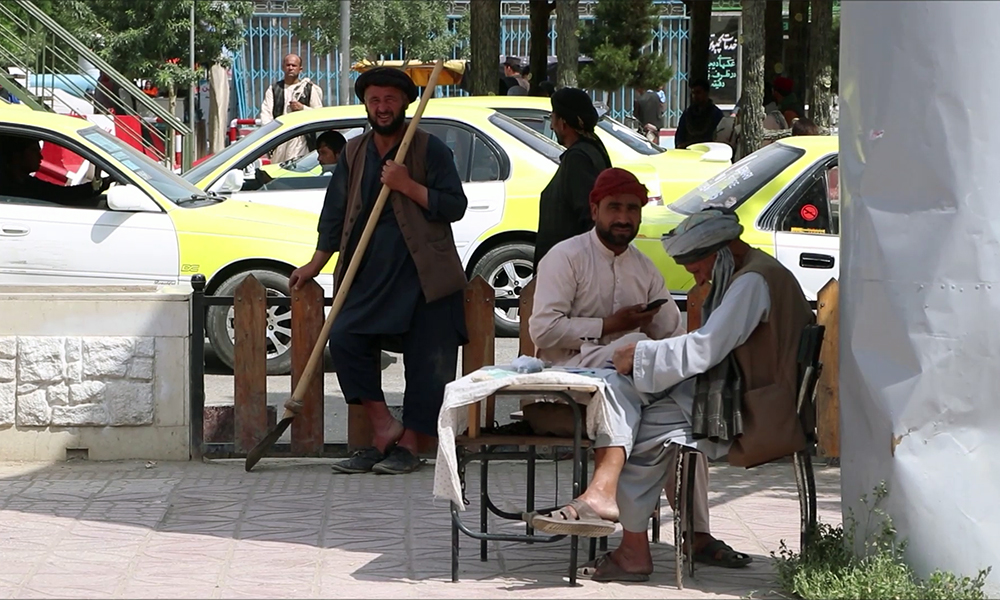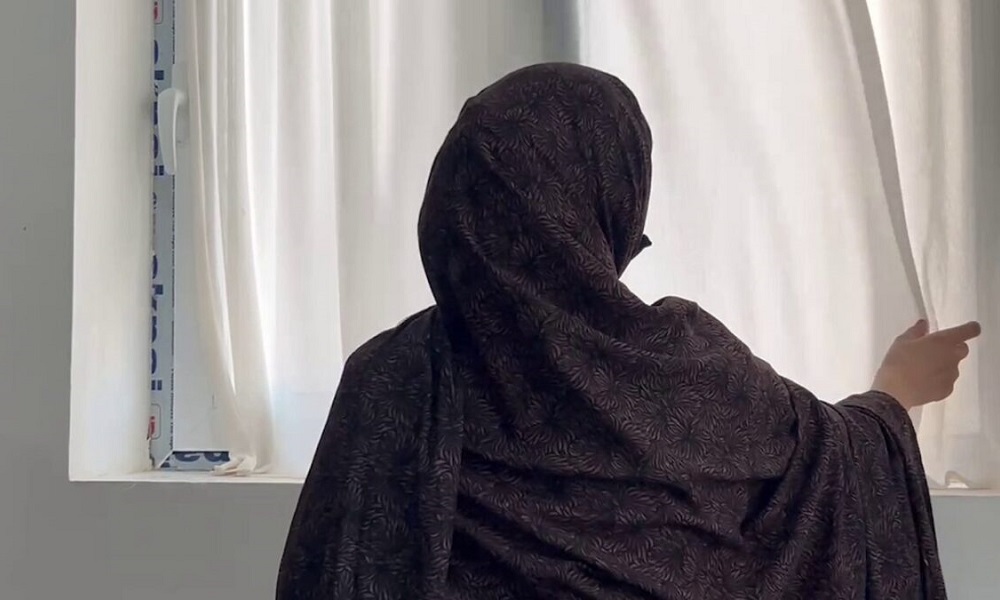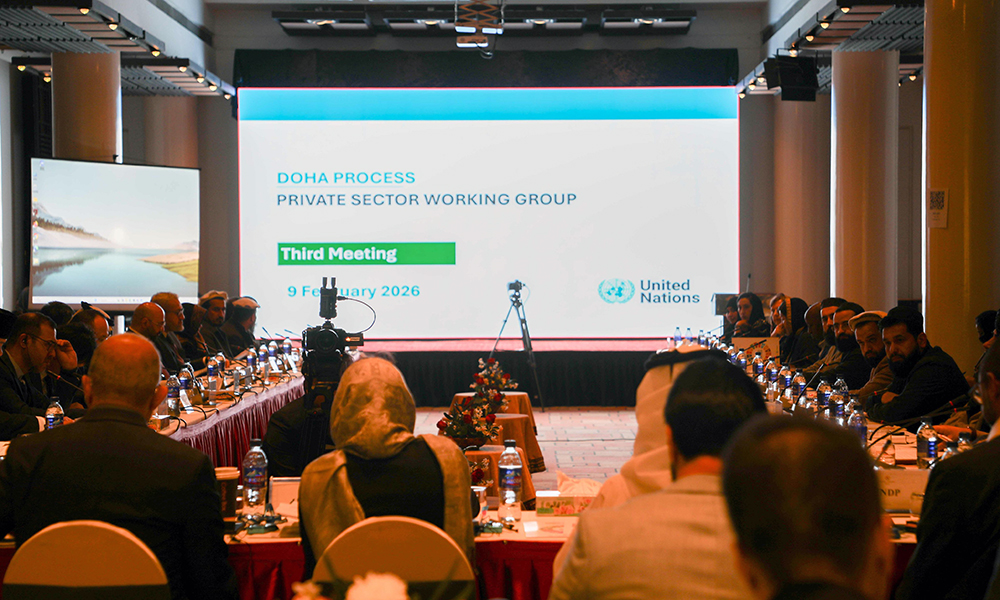Latest News
Afghanistan’s contracted economy faces uncertainty: World Bank

The Afghan economy is expected to hover around no-growth territory this year, amid uncertainty after contracting by 25% since August 2021, while Islamic Emirate of Afghanistan’s (IEA) restrictive policies on women’s education and work will further lower the country’s growth prospects, says the World Bank in a report released Tuesday.
The report titled Uncertainty After Fleeting Stability, shows how Afghanistan’s economic downturn has affected all sectors. Services, which make up 45% of the country’s GDP, shrank by 6.5% last year, following a staggering 30% drop in 2021. The agriculture sector, which accounts for 36% of GDP, declined by 6.6% in 2022 due to unfavorable weather conditions and farmers’ lack of resources to cope.
The industrial sector also saw a contraction of 5.7% last year, as businesses—especially those owned by women—faced closures due to limited access to resources and financial challenges. Following a record high in 2022, exports have been declining this year while imports remain robust, resulting in a growing trade deficit, the World Bank said.
Dampened demand, better supply conditions, and a stronger currency caused inflation to sharply decline from its 18.3% peak last July, leading to deflation since April 2023. Although deflation may initially increase real wages, prolonged deflation could stifle business growth and increase unemployment, the bank warned.
A potential reduction in international aid due to fiscal pressures in donor countries and the restrictive policies on women and girls pose risks to Afghanistan’s recovery, as do concerns about stability of the banking sector and dysfunctional payments system, the report said.
“Afghanistan’s economy is fragile, relies heavily on external support and its private sector is weak,” said Melinda Good, World Bank Country Director for Afghanistan. “To recover, the country needs to prioritize spending on human capital, basic services and climate resilience and address harmful gender policies.”
According to the World Bank’s latest Afghanistan Welfare Monitoring Survey, also released Tuesday,one in two Afghans remain poor and recent gains in welfare have come at the cost of possibly exhausting all coping strategies and household resources.
Since the economic crash of 2021, households report an improvement in their capacity to meet basic needs, but deprivation and vulnerability remain high. Afghan households have mobilized extra labor to make ends meet, mainly among youth and women. The overall increase in labor supply has outpaced demand, doubling unemployment.
While improved security has increased primary school attendance and narrowed gender and rural-urban gaps, millions of primary-school-age girls and boys remain out of school mainly due to a lack of access. Since the ban on female secondary school attendance was imposed, only 3% of girls attend secondary school. Among boys aged 13-18, only 44% are receiving a secondary education, World Bank said.
“Afghanistan’s future growth potential hinges on improving human capital. What is happening to secondary education is a cause of grave concern,” added Good. “Almost no girls and less than half of the country’s boys are getting a secondary education. Where will the teachers and doctors of tomorrow come from? A country cannot grow if it willingly foregoes the potential of its citizens.”
Latest News
Economic Commission approves national policy for development of agriculture

At a regular meeting of the Economic Commission chaired by Mullah Abdul Ghani Baradar, Deputy Prime Minister for Economic Affairs, the National Policy for the Development of the Agriculture and Livestock Sector was approved.
According to a statement from the deputy PM’s office, the key objectives of the policy include the mechanization of the agriculture and livestock sector; development of agricultural, irrigation, and livestock research and extension systems; management of irrigation systems; support for investment in these sectors; and ensuring public access to high-quality agricultural and animal products.
During the same meeting, the development plan for the fish farming sector was also approved.
Under this plan, through private sector investment, 7,700 small, medium, and large fish production and farming facilities will be established on 6,500 hectares of land in various parts of the country.
The statement added that the implementation of this plan will create direct employment opportunities for 50,000 people and indirect employment for 250,000 others.
Latest News
Afghan authorities prevent three forced marriages in Balkh, Kunar, and Parwan

Officials from Afghanistan’s Ministry for Virtue and Vice successfully intervened to stop three cases of forced marriage in the provinces of Balkh, Kunar, and Parwan, protecting women’s rights under Islamic law.
The cases involved families attempting to marry off their daughters against their will. After registering and reviewing the complaints, ministry officials acted swiftly to halt the marriages.
The families were summoned and advised on the importance of respecting women’s rights and the freedom to choose a spouse. Following the intervention, they pledged that all future marriages of their daughters would occur only with the women’s full consent.
The ministry said the actions reflect its ongoing commitment to safeguarding women’s rights and enforcing Islamic principles across Afghanistan.
Latest News
Doha process private sector meeting highlights growth and coordination in Afghanistan
The session was divided into two segments, focusing on growth and inclusion in the first part, and coordination and transparency in the second.

The 3rd session of the Doha Process Private Sector Working Group was held both in-person and online at Kabul’s Grand Hotel, hosted by the United Nations Assistance Mission in Afghanistan (UNAMA).
The meeting brought together representatives from the Islamic Emirate of Afghanistan, including the Ministries of Foreign Affairs, Finance, Industry and Commerce, Economy, Labor and Social Affairs, and the Central Bank, alongside UNAMA, UN agencies, international and regional organizations, as well as ambassadors, diplomats, and private sector experts.
The session was divided into two segments, focusing on growth and inclusion in the first part, and coordination and transparency in the second.
Afghanistan’s Islamic Emirate representatives shared achievements and progress since assuming governance, while participants acknowledged these efforts and highlighted their ongoing support for the private sector. All parties offered recommendations to address challenges and emphasized enhanced cooperation moving forward.
-

 Latest News3 days ago
Latest News3 days agoAfghanistan to grant one- to ten-year residency to foreign investors
-

 Sport4 days ago
Sport4 days agoIndonesia shock Japan to reach historic AFC Futsal Asian Cup final
-

 Sport3 days ago
Sport3 days agoIran clinch AFC Futsal Asian Cup 2026 in penalty shootout thriller
-

 Latest News3 days ago
Latest News3 days agoAfghanistan says Pakistan is shifting blame for its own security failures
-

 International Sports2 days ago
International Sports2 days agoWinter Olympics gain momentum as medal table takes shape
-

 Latest News5 days ago
Latest News5 days agoAfghanistan facing deepening hunger crisis after US Aid Cuts: NYT reports
-

 World5 days ago
World5 days agoUS, Ukraine, Russia delegations agree to exchange 314 prisoners, says Witkoff
-

 Latest News3 days ago
Latest News3 days agoTraffic police receive new cars
























